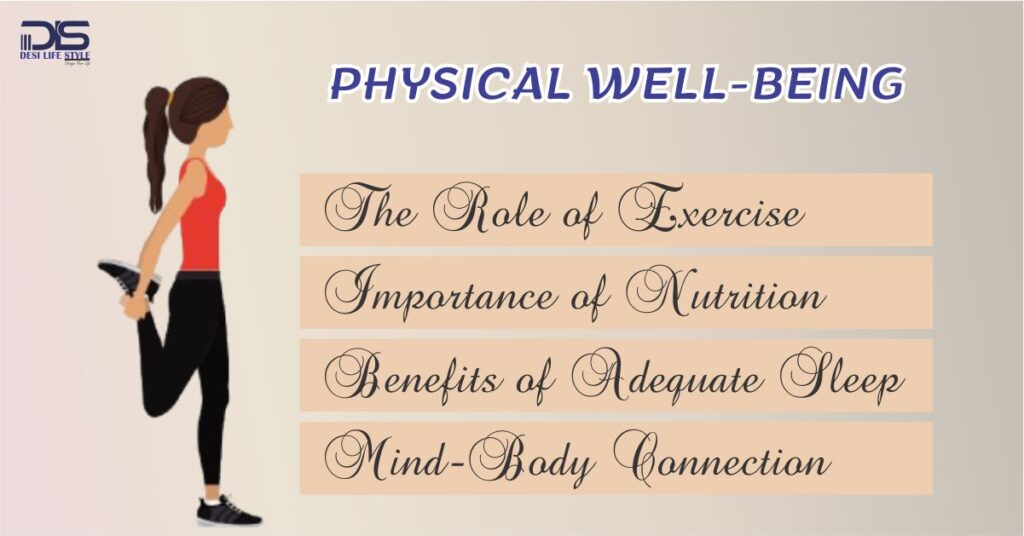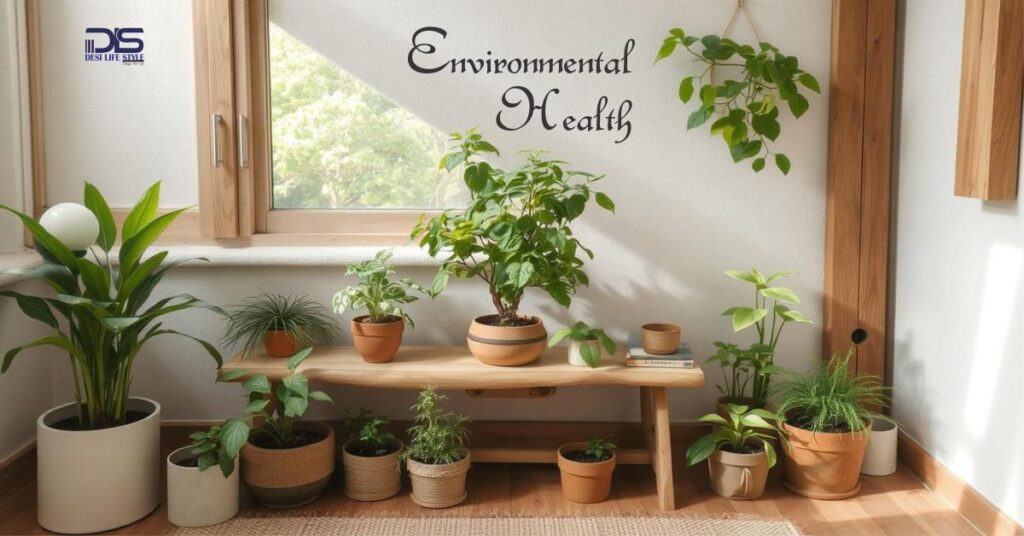Discover the benefits of a holistic approach to better lifestyle. Learn how to balance physical, mental, emotional, and spiritual well-being for a healthier and happier life. Explore practical steps, success stories, and tips for overcoming challenges to create a sustainable and fulfilling lifestyle.
Introduction
Adopting a holistic lifestyle isn’t just a trend—it’s a transformative journey towards a balanced, healthy, and fulfilling life. But what exactly is a holistic lifestyle, and why is it so important?
What is a Holistic Lifestyle?
A holistic lifestyle considers the whole person—mind, body, spirit, and environment. It’s about recognizing the interconnectedness of all aspects of life and striving for balance and harmony.
Importance of a Holistic Approach
A holistic approach emphasizes overall well-being rather than just treating symptoms. By addressing all aspects of life, you create a sustainable and balanced way of living that promotes long-term health and happiness.
Physical Well-being

The Role of Exercise
Regular physical activity is crucial in A Holistic Approach to Better Lifestyle. It boosts mood, improves cardiovascular health, and strengthens muscles and bones. Find something you enjoy, whether it’s jogging, yoga, or the gym, to keep it sustainable.
Importance of Nutrition
You are what you eat! Nutritious food fuels your body, supports your immune system, and keeps your mind sharp. Focus on whole food sources, adjusted dinners, and staying hydrated.
Benefits of Adequate Sleep
Sleep is often underestimated. Quality sleep is essential for mental clarity, physical health, and emotional balance. Aiming for 7-9 hours of sleep per night will keep you feeling fresh and refreshed.
Mind-Body Connection
Your physical health can directly impact your mental and emotional well-being. Practices like yoga and tai chi not only strengthen your body but also calm your mind and center your spirit.
Mental Health
Managing Stress
Stress is a part of life, but managing it effectively is key. Techniques such as deep breathing, meditation, and time management can help you keep stress in check.
Practicing Mindfulness
Mindfulness is a key component of A Holistic Approach to Better Lifestyle, focusing on being present in the moment. It reduces anxiety, enhances focus, and improves emotional regulation. Simple practices like mindful breathing or meditation can make a significant difference.
Cognitive Health
Keeping your brain active is an essential aspect of A Holistic Approach to Better Lifestyle. Engage in activities that challenge your mind, such as solving puzzles, reading, or learning new skills.
Emotional Health

Understanding Emotions
Emotional health involves recognizing and understanding your emotions. Journaling, therapy, or talking with a friend can help you process your feelings.
Building Emotional Resilience
Resilience helps you bounce back from life’s challenges. Techniques such as positive thinking, maintaining perspective, and seeking support when needed are vital.
The Power of Positive Relationships
Healthy relationships form the foundation of A Holistic Approach to Better Lifestyle. Nurture bonds with friends, family, and partners through open communication and meaningful shared experiences.
Spiritual Well-being
Finding Purpose and Meaning
Having a sense of purpose gives life direction. Whether it’s through religion, personal values, or community service, find what makes your life meaningful.
Practices for Spiritual Growth
Spiritual growth is an essential part of A Holistic Approach to Better Lifestyle and can be nurtured through practices like prayer, meditation, or reading inspirational texts. These practices offer comfort and a sense of peace.
Meditation and Its Benefits
Meditation can be an incredible asset for otherworldly development. It enhances self-awareness, reduces stress, and promotes a sense of calm and clarity.
Environmental Health
Creating a Healthy Living Space
Your environment affects your well-being. Keep your living space clean, organized, and filled with things that bring you joy.
Connection with Nature
Spending time in nature can alleviate stress, boost mood, and enhance overall well-being. Embrace A Holistic Approach to Better Lifestyle by incorporating more outdoor activities into your daily routine.
Sustainable Living Practices
Sustainable practices not only benefit the planet but also your health. Consider reducing waste, recycling, and using eco-friendly products.
Social Well-being
Importance of Community
Being part of a community offers both support and a feeling of belonging. Engage in local events, volunteer, or join groups that interest you.
Building Support Networks
Having a network of supportive friends and family is crucial. These connections provide emotional support and can help you through tough times.
Social Activities for Fulfillment
Social activities, whether it’s a hobby group or a sports team, provide enjoyment and a sense of achievement. Find activities that bring you joy and engage with others.
Balancing Work and Life
Setting Boundaries
It’s important to set boundaries between work and personal life to prevent burnout. Learn to say no and prioritize your well-being.
Time Management Tips
Effective time management can help you balance various aspects of your life. Use tools like calendars, to-do lists, and time-blocking to stay organized.
Achieving Work-Life Harmony
Work-life harmony is about integrating work and personal life in a way that promotes overall well-being. Find a routine that give you pleasure and draw in with others.
Financial Health
Financial Planning and Budgeting
Financial stability is a key aspect of overall well-being. Create a budget, stick to it, and plan for the future to reduce financial stress.
Reducing Financial Stress
Financial stress can affect various aspects of your life. As part of A Holistic Approach to Better Lifestyle, seek financial advice if needed and focus on building a secure financial foundation.
Building Financial Security
Building financial security involves saving, investing, and planning for the long term. It provides a sense of peace of mind and stability.
Holistic Health Practices
Integrative Medicine
Integrative medicine combines conventional and alternative treatments. It looks at the whole person and focuses on health and healing rather than just treating disease.
Alternative Therapies
Alternative therapies, such as acupuncture, chiropractic, and herbal medicine, can complement traditional treatments and promote overall well-being.
Preventive Health Measures
Prevention is better than cure. Regular check-ups, a healthy lifestyle, and early intervention can help prevent many health issues.
Technology and Lifestyle
Digital Detox
Watching screens for too long can be harmful. Regular digital detoxes can improve mental clarity and reduce stress.
Benefits of Technology for Health
While technology can be overwhelming, it also offers tools for better health. Apps for meditation, fitness trackers, and online health communities can be beneficial.
Managing Screen Time
It is very important to maintain a balance of screen time. Set limits, take breaks, and ensure technology usage is purposeful and beneficial.
Practical Steps to Implement a Holistic Lifestyle
Creating a Personal Plan
A personal plan tailored to your needs and goals is essential. Identify areas to improve and make a step-by-step plan.
Setting Realistic Goals
Set achievable goals to stay motivated. Break down larger goals into smaller manageable steps.
Tracking Progress
Tracking your progress helps you stay on course. Use journals, apps, or checklists to monitor your journey.
Challenges in Adopting a Holistic Lifestyle
Overcoming Obstacles
Adopting a holistic lifestyle can be challenging. Identify possible obstacles and make a good strategy to overcome them.
Staying Motivated
Staying motivated is crucial. Remind yourself of your goals, celebrate small victories, and seek support when needed.
Seeking Support
Don’t be afraid to ask for help. Friends, family, and professionals can provide the support you need to stay on track.
Success Stories
Real-life Examples
Hearing real-life examples can be incredibly inspiring. Take Jane, for instance. She struggled with stress and poor health until she adopted a holistic lifestyle. By integrating regular exercise, a balanced diet, meditation, and fostering positive relationships, she transformed her life. Today, Jane is healthier, happier, and more fulfilled.
Lessons Learned
We can learn valuable lessons from these success stories. Key takeaways often include the importance of consistency, small changes, and seeking support. While everyone’s journey is unique, the principles of A Holistic Approach to Better Lifestyle apply universally.
Inspiration for Your Journey
Use these stories as motivation. Remember, change is possible, and you too can achieve a balanced, healthy lifestyle. Start small, stay committed, and believe in your ability to transform your life.
Conclusion
Adopting A Holistic Approach to Better Lifestyle encompasses many aspects of life—from physical health to mental, emotional well-being, spiritual growth, and environmental mindfulness. By integrating these elements, you can create a balanced, fulfilling, and sustainable way of living. Start your journey today, set realistic goals, and take it one step at a time. Remember, every small change contributes to a bigger, healthier picture.
FAQs
Q. What is the first step to a holistic lifestyle?
A. The first step is to assess your current lifestyle and identify areas for improvement. Start with small, manageable changes, such as incorporating more physical activity or practicing mindfulness.
Q. How can I balance all aspects of a holistic lifestyle?
A. Balancing all aspects involves setting priorities, creating a personal plan, and regularly reviewing your progress. Ensure you allocate time and effort to each area—physical, mental, emotional, spiritual, environmental, social, and financial.
Q. Are there any quick tips for better mental health?
A. Yes, quick tips include practicing mindfulness, engaging in regular physical activity, getting adequate sleep, and staying connected with loved ones.
Q. What are some simple ways to improve emotional well-being?
A. Simple ways to improve emotional well-being include journaling, talking to a trusted friend, practicing gratitude, and engaging in activities you enjoy.
Q. How does one stay committed to a holistic lifestyle?
A. Stay committed by setting realistic goals, tracking your progress, seeking support, and celebrating your achievements, no matter how small. Remember, consistency is key.

